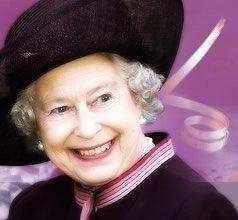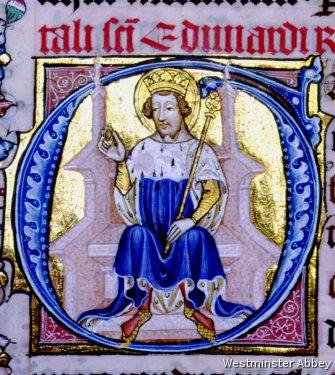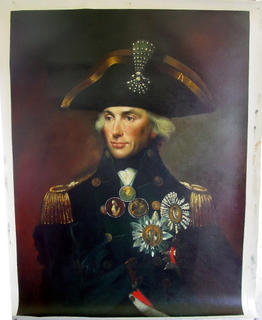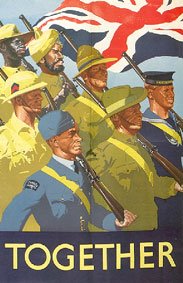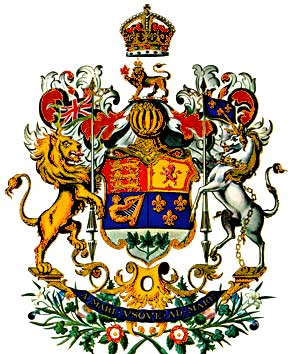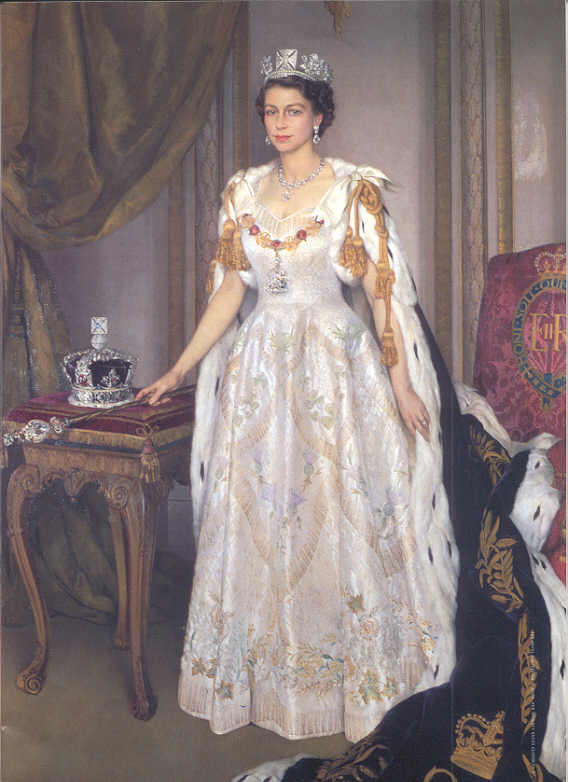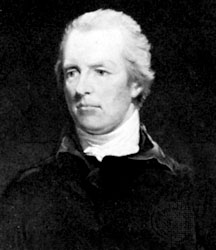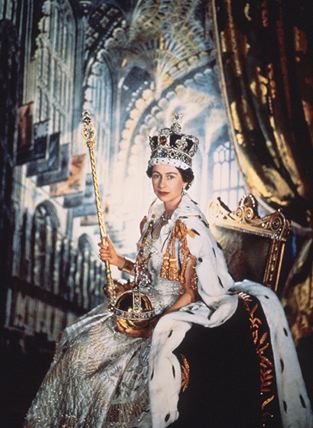[+] HONOURING OUR PATRON, SIR WINSTON CHURCHILL, VICTOR OF THE ENGLISH-SPEAKING PEOPLES
[+] HONOURING OUR QUEEN, ELIZABETH THE SECOND, ON THE 80TH YEAR OF HER BIRTH (1926 - 2006)
[+] HONOURING OUR KING, SAINT EDWARD THE CONFESSOR, ON THE 1000TH YEAR OF HIS BIRTH (1005 - 2005)
[+] HONOURING OUR HERO, LORD NELSON, ON THE BICENTENNIAL OF THE BATTLE OF TRAFALGAR (1805 - 2005)
[+] HONOURING OUR SONS, THE QUEEN'S COMMONWEALTH SOLDIERS KILLED IN THE 'WAR ON TERROR'
[+] HONOURING OUR VETS ON THE 150TH ANNIVERSARY OF THE VICTORIA CROSS (1856 - 2006)
Monarchist Contributor: Author from the United States
Joined the Monarchist in May 2005
Archive of Author's Work
Author's Blog: The Wild Duck
Honouring James Madison, American President and Father of the US Constitution
 James Madison (March 16, 1751–June 28, 1836) was the fourth (1809–1817) President of the United States. He was co-author, with John Jay and Alexander Hamilton, of the Federalist Papers, and is traditionally regarded as the "Father of the United States Constitution."
James Madison (March 16, 1751–June 28, 1836) was the fourth (1809–1817) President of the United States. He was co-author, with John Jay and Alexander Hamilton, of the Federalist Papers, and is traditionally regarded as the "Father of the United States Constitution." Madison was born in King George County, Virginia. His parents Colonel James Madison, Sr (March 27, 1723 – February 27, 1801) and Eleanor Rose "Nellie" Conway (January 9, 1731 – February 11, 1829) were the prosperous owners of the tobacco plantation in Orange County, Virginia where James spent most of his childhood years. In 1769, James left the plantation to attend Princeton University (it was called the College of New Jersey at the time), finishing its four-year course in two years, but exhausting himself from overwork in the process. When he regained his health, he became a proteg頯f Thomas Jefferson. In this capacity he became a prominent figure in Virginia state politics, helping to draft their declaration of religious freedom and persuading Virginia to give their northwestern territories (consisting of most of modern-day Ohio, Kentucky and Tennessee) to the Continental Congress.
In the 1780s, Madison helped convince the political leaders of the time to call for a convention to replace the ineffective Articles of Confederation. Madison was the best prepared delegate at the Constitutional Convention, and his overall influence at Philadelphia in 1787 has led some historians to call him the "Father of the Constitution." Madison called for a strong central government with a bicameral legislature. When the issue arose of how states would be represented in the new Congress, Madison was one of the strongest advocates of state representation depending on population.
His notes from the Constitutional Convention are the best documentary evidence we have as to the thinking of what Thomas Jefferson (who was in France at the time) called an "assembly of demi-gods." To support Constitutional ratification in New York State, Madison put aside his doubts to work with Alexander Hamilton and John Jay to write the Federalist Papers, which are considered the definitive contemporary commentary on the Constitution of the USA. Madison's arguments were powerfully influenced by the political thought of Charles de Secondat, Baron de Montesquieu.
Madison wrote thirty of the eighty-five essays that comprise the Federalist Papers. His most famous passage comes in Federalist No. 51:
"If men were angels, no government would be necessary. If angels were to govern men, neither external nor internal controls on government would be necessary. In forming a government which is to be administered by men over men, the great difficulty lies in this: you must first enable government to control the governed; and in the next place oblige it to control itself."
When the Constitution was ratified, Madison became a U.S. Representative from his home state of Virginia. It was he who successfully proposed the first 10 amendments to the Constitution, known collectively as the Bill of Rights, based on earlier work by George Mason. The chief characteristic of Madison's time in Congress was his desire to limit the power of the federal government. It was when he and the other followers of Thomas Jefferson denied the power of the federal government to form its own bank that the first political parties in the United States were formed: the Federalists, who followed Hamilton and believed in a strong central government, and the Democratic-Republicans, who followed Jefferson and believed strongly in limiting centralized power.
At 5 ft 4 in (163 cm) and 100 pounds (45 kg), Madison was the nation's shortest president and frequently ill. In 1794, Madison married Dolley (Dolley Madison), who cut as attractive and vivacious a figure as he did a sickly and antisocial one. It was Dolley who is largely credited with inventing the role of "First Lady" as political ally to the president.
In 1797 Madison left Congress; in 1801 he became Jefferson's Secretary of State. In 1808, he ran for president in his own right, and won, largely on the strength of his abilities in foreign affairs at a time when United Kingdom (Britain) and France were both on the edge of war with the United States. Both countries were blockading the ports of the other, preventing commerce with either. In 1810, a bill was passed that would break off relations with any nation that would not remove the blockade: France did, and Britain did not.
In the ensuing War of 1812, the British won victory after victory, including a temporary occupation of Washington, D.C., forcing Madison to flee the city. The British also armed American Indians in the West, including the Shawnee under their leader Tecumseh. Neither side was terribly enthusiastic about the war, however: the British had little to gain, and in the United States, New England threatened secession if the war was not ended. In 1814, the Treaty of Ghent ended the war. The Battle of New Orleans (1815), in which Andrew Jackson distinguished himself, was fought 15 days after the treaty was signed – the news not reaching Louisiana in time from Belgium. The major lasting effect for the political face of the country was the end of the Federalist party, who were considered traitors when they opposed the war.
After leaving office, Madison retired to Montpelier, his farm in Virginia. He was briefly the rector of Jefferson's University of Virginia, but spent most of his days farming. Madison was the first president of the American Colonization Society, which bought passage for free black Americans to the Society's colony in west Africa, Liberia. When he died on June 28, 1836, by the terms of his will, $2000 were bequeathed to the ACS through its tireless agent Rev. Dr. Ralph Randolph Gurley but his "ownership in the negroes and people of color" he bequeathed to his wife.[1] (http://www.jamesmadisonmus.org/resources/will.htm) Madison was a slaveholder throughout his entire life.
Biography Links: White House; American Presidents; The Federalist; War of 1812; AmericanPresident.ORG


